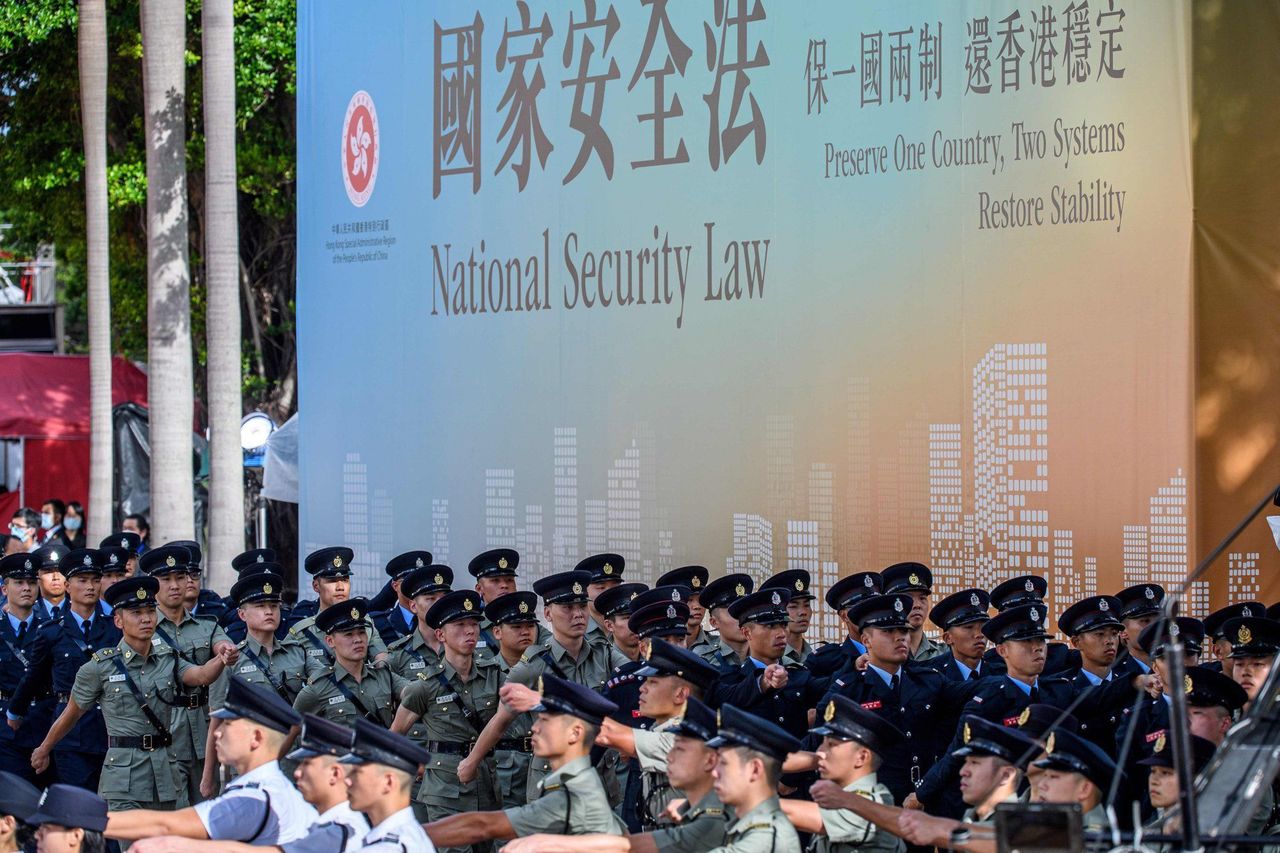Government announces new rules as part of midterm review of 12-year licence for TVB, ViuTV, HOY TV, Commercial Radio and Metro Broadcast.
Hong Kong authorities will require TV and radio broadcasters using the public airwaves to run at least 30 minutes of content each week about national education and identity, as well as the national security law imposed by Beijing following anti-government protests in 2019.
Authorities announced the rules on Tuesday as part of a midterm review of the 12-year licence held by three free-to-air TV operators – Television Broadcasts (TVB), ViuTV and HOY TV – and radio stations Commercial Radio and Metro Broadcast. The government said the requirement would be adopted by amending the permit conditions or instruction by the Communications Authority.
But questions have been raised over whether the mandated content would prove effective in getting the intended messages across, with one media expert saying the government should address the reasons behind residents’ reticence towards the state, rather than churning out propaganda.
 The national security law requires the government to “promote national
security education in schools and universities and through social
organisations, the media, the internet” and other means.
The national security law requires the government to “promote national
security education in schools and universities and through social
organisations, the media, the internet” and other means. TV stations were also asked to double the weekly broadcast hours of programming for young people, while radio stations were allowed to reduce the total number of broadcast hours in English on their English radio channels to 55 per cent, down from the current minimum of 80 per cent.
Lawmaker Tik Chi-yuen, the sole non-establishment member of the Legislative Council, said an extra 30 minutes of national identity was a moderate amount.
“It is about five more minutes a day on average,” he said. “But the question is whether it can get the results the government wants to see. Hard-sell tactics cannot work nowadays. Sometimes it can backfire.”
Tik agreed additional programmes aimed at younger audiences was a good idea but cautioned that it needed to be packaged in the right way to grab their attention.
Media academic Bruce Lui Ping-kuen at Baptist University, and a former TV journalist, warned that governments could often find it difficult to instil patriotism in citizens.
“Sometimes, you cannot teach people to be patriotic or identify with their country. Back in 2008 when there was the Beijing Olympics, Hong Kong people identified very much with the country and Chinese astronauts were seen as heroes when they visited Hong Kong,” he said.
“What happened in recent years made people develop other sentiments towards the authorities. It is more important to address the source of the problems instead of asking the media to help the authorities do more propaganda, which can also harm the credibility of media organisations too.”
He also expressed concerns that such production could be misused to influence a media organisation’s independence.
But Elizabeth Quat, a lawmaker with the pro-Beijing Democratic Alliance for the Betterment and Progress of Hong Kong, argued TV operators had a social responsibility to help the public understand government policies.
“The midterm review is supposed to be for the government to see what licensees need to do more and update the requirements,” she said. “So, it cannot be said to be unfair.”
Under Article 9 of the national security law introduced in 2020, the Hong Kong government has a duty to “promote national security education in schools and universities and through social organisations, the media, the internet” and other means.















